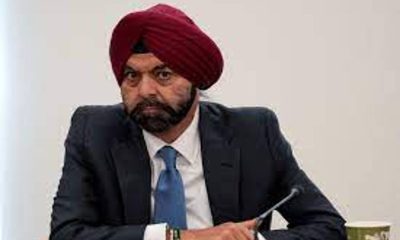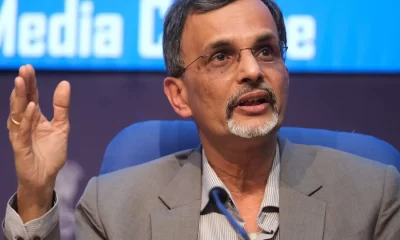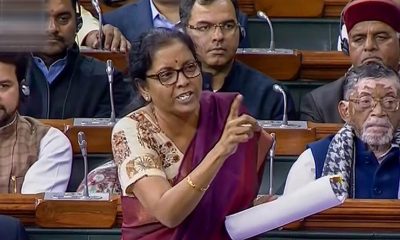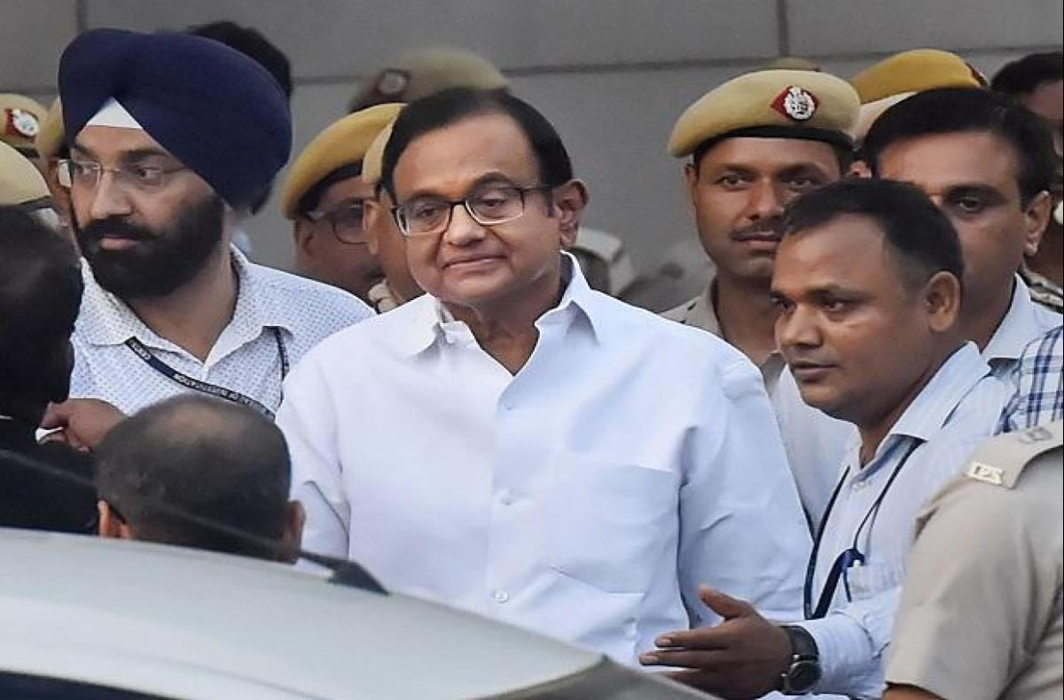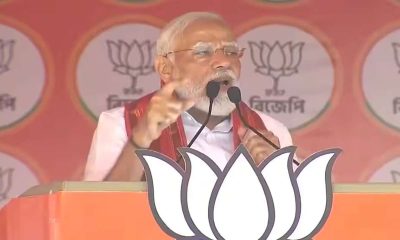Latest business news
World economy in slowdown, growth to be lowest in decade; to hit India harder: IMF chief
With global economic slowdown, growth in 2019-20 will fall to its lowest since the beginning of the decade, affecting emerging market economies such as India more.

With economic slowdown affecting almost 90 per cent of the world, growth in 2019-20 will fall to its lowest rate since the beginning of the decade and this is having a “more pronounced” effect on emerging market economies such as India, said the new International Monetary Fund (IMF) Managing Director, Kristalina Georgieva, on Tuesday, Oct 8.
Georgieva took over leadership at the IMF from Christine Lagarde as MD on Oct 1. Georgieva made this assessment one week ahead of the joint Annual Meeting between the IMF and World Bank (WB) in which both institutions will present their economic projections in a gathering of top central bankers and economy ministers.
The fund is due to release details in its updated World Economic Outlook on October 15.
“Two years ago, the global economy was in a synchronized upswing. Measured by GDP, nearly 75 per cent of the world was accelerating. The global economy is now in a synchronized slowdown. In 2019, we expect slower growth in nearly 90 per cent of the world,” said Georgieva in her first speech as MD, IMF.
“In the United States and Germany, unemployment is at historic lows. Yet across advanced economies, including in the US, Japan, and especially the Euro area, there is a softening of economic activity,” she said.
“In some of the largest emerging market economies, such as India and Brazil, the slowdown is even more pronounced this year,” she added.
She said the IMF is cutting its forecasts for growth this year and next. Previously, the world economy had been projected to expand by 3.2 per cent in 2019 and 3.5 percent in 2020.
The IMF had cut its projection for India’s economic growth by 0.3 percentage points to 7 per cent for the fiscal year 2019-20 owing to the “weaker-than-expected outlook” for the domestic demand.
Georgieva attributed the slowdown to a range of uncertainties — she called them “fractures” — including trade tensions, Brexit and geopolitical tensions.
Georgieva said that currencies are once again in the spotlight and disputes now extend between multiple countries and into other critical issues.
“Even if growth picks-up in 2020, the current rifts could lead to changes that last a generation — broken supply chains, siloed trade sectors, a ‘digital Berlin Wall’ that forces countries to choose between technology systems,” she said.
The IMF Managing Director said that global trade growth has come to a “near standstill.”
Amid rising trade war between the countries which is generally fought through tariffs and counter-tariffs, the chief called for nations to work together.
While trade tensions had been talked about as a danger to the economy, “now, we see that they are actually taking a toll,” she said.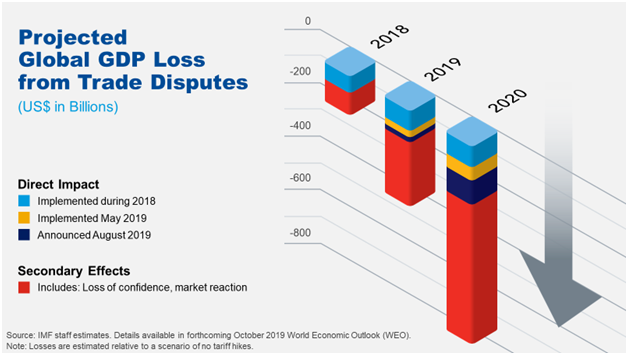
She said trade tensions could result in “substantial weakening” of manufacturing and investment activity, and could subsequently affect services and consumption.
“Everyone loses in a trade war. For the global economy, the cumulative effect of trade conflicts could mean a loss of around $700 billion by 2020, or about 0.8 per cent of GDP. As a reference, this is approximately the size of Switzerland’s entire economy,” she said.
Georgieva compared the present scenario to that of two years ago, before the US-China trade war, when countries representing nearly 75 per cent of the world’s output were seeing accelerating growth.
To protect against a sharp global slowdown, Georgieva called on countries with funds available to deploy their “fiscal firepower”. She called for a “coordinated” response to the slowdown. “The world economy is still growing, it is just growing too slowly. To reverse this trend, and meet the aspirations of people, we cannot afford to be complacent. We must act,” she said.
The IMF chief’s statement came even as the Reserve Bank of India (RBI) said that the Indian economy which has largely been subdued in the past few quarters and signs of a slowdown have cropped up, is likely to face several more risks in the near term.
The RBI in its Monetary Policy Report, October 2019, has also said that a combination of domestic and global headwinds has depressed economic activity in the country “especially in terms of aggregate demand”. The near-term outlook of the Indian economy is fraught with several risks, said the report.
It said that private consumption, which is the major support of economic activity, has started to slow down due to several reasons.
Latest business news
Google restores delisted Indian apps after government intervention
Google on Saturday restored all Indian apps it had removed.

Google has started to restore all the delisted Indian mobile apps on Play Store agian, which they had removed due to a disagreement over service fees. After a discussion between company representatives and IT Minister Ashwini Vaishnaw, the decision was made, according to sources.
The step was taken in response to Vaishnaw’s strong statement in which he said that it is not allowed for apps to be removed from the Google Play Store. The minister had said, India is very clear, our policy is very clear…our startups will get the protection that they need.
Vaishnaw continued saying that he has already given Google a call. They will be speaking with the app developers who were delisted this week. This is not acceptable. The minister said this kind of delisting cannot be permitted.
Ten Indian companies’ apps were banned by Google on Friday, causing outrage in one of its fastest-growing markets. With 94% of phones running on its Android platform, Google holds a large portion of the Indian market. Popular names like Naukri and Bharatmatrimony were on the list.
The main point of contention is Google’s in-app purchase fees, which range from 11% to 26%. Indian startups have long opposed the US tech giant’s actions, believing them to be unfair.
The founder of Bharat Matrimony, Christian Matrimony, Muslim Matrimony, and Jodii, Matrimony.com, expressed shock at the matchmaking apps’ removal from the Google Play Store.
Shaadi. Com CEO Anupam Mittal described it as a dark day for India’s internet, highlighting the possible broad effects on matchmaking services. He also called Google an evil.
While, Kuku FM Co-founder Vinod Kumar Meena in a statement had said that Google was behaving like a monopoly.
Meanwhile, Google temporarily withdrew the famous Indian payments app Paytm from the Play Store in 2020, claiming a few policy infractions. Due to this decision, the founder of the company as well as the larger startup community came together to build their own app stores and file lawsuits against Google.
Latest business news
Anant Ambani says he is 100% lucky to get Radhika Merchant in his life
Anant Ambani said he was grateful to get Radhika as his life partner. He said he is 100% lucky to get Radhika Merchant in his life. He said every day he is falling more and more in love with her. He added although he had known Radhika for the last 7 years, it felt he had met her only yesterday. He thanked Radhika for everything.

Anant Ambani and Radhika Merchant’s grand three-day wedding celebrations began with a glamorous cocktail night on Friday in Jamnagar. During the celebrations, Anant Ambani also gave a speech wherein he thanked his late grandfather Dhirubhai Ambani and grandmother Kokilaben Ambani for inspiring him. Anant Ambani said he was grateful to get Radhika as his life partner. He said he is 100% lucky to get Radhika Merchant in his life. He said every day he is falling more and more in love with her.
He expressed his gratitude to his mother for pulling together the lavish three-day wedding celebrations in Jamnagar. Anant thanked his mother for all she had done. He said all the arrangements had been done by his mother and nobody else. He added his mother had gone all out and she had worked 18-19 hours a day and he was extremely grateful to her.
He also thanked all the guests who were present there at the pre-wedding celebrations. He said everyone had made it to Jamnagar to make him and Radhika feel special. He said both of them were honored and humbled to have all of them present there. Anant said he was sorry if they had caused an inconvenience to anyone. He asked for forgiveness. He hoped everyone is going to enjoy the coming three days. He also thanked his mother, father, sister, brother, his sister-law and his brother in-law for making this event memorable.
Anant said everyone has been sleeping for less than 3 hours a day for the last 2-3 months and he was very happy to share this joy with everyone. The youngest Ambani talked about his personal struggles and how his parents had always supported him. He further added his life had not been entirely a bed of roses. He said he had also experienced the pain of thorns. He said he had faced many health crises.
Latest business news
Facebook chief Mark Zuckerberg shares pictures from 2nd day of Anant Ambani and Radhika Merchant pre-wedding celebrations
Zuckerberg shared pictures from the 2nd day of Anant Ambani and Radhika Merchant’s pre-wedding celebrations. In the photograph Mark Zuckerberg can be seen along with his wife Priscilla Chan. The couple is exuding happiness as they prepare for the event. He captioned the picture it is getting wild out here.
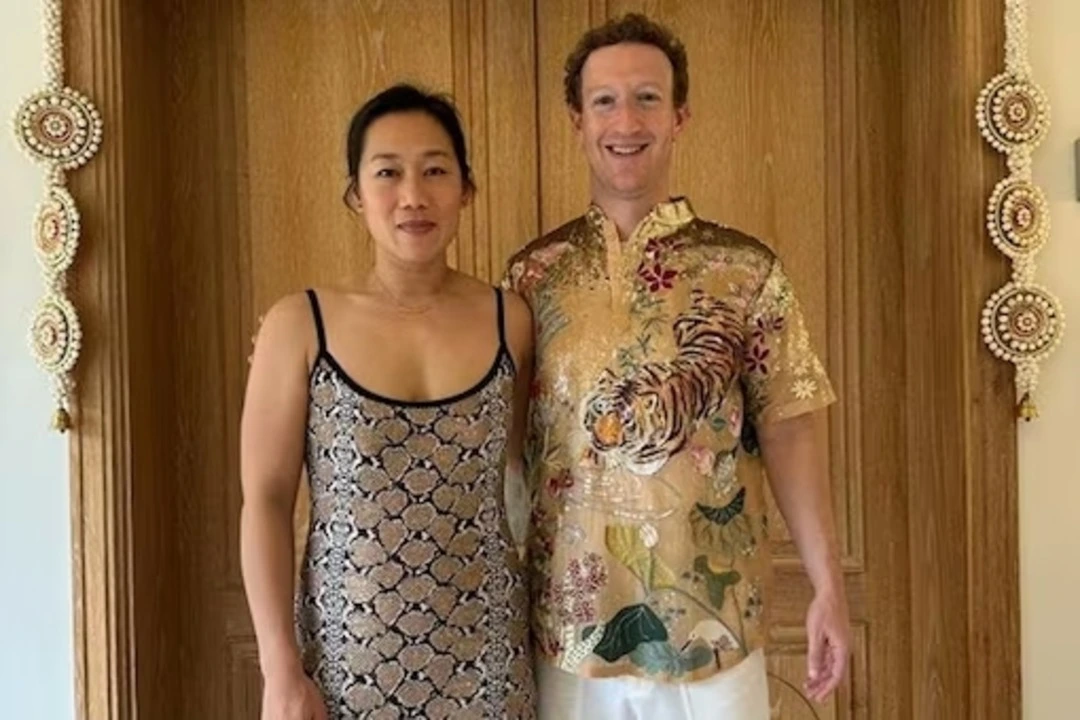
Facebook boss Mark Zuckerberg and wife Priscilla Chan joined the star- studded pre-wedding celebrations of Anant Ambani and Radhika Merchant in Jamnagar on Friday. The event was attended by many prominent figures from different fields. Zuckerberg took to his Instagram handle congratulated the couple and said he loved Indian weddings.
Zuckerberg shared pictures from the 2nd day of Anant Ambani and Radhika Merchant’s pre-wedding celebrations. In the photograph Mark Zuckerberg can be seen along with his wife Priscilla Chan. The couple is exuding happiness as they prepare for the event. He captioned the picture it is getting wild out here.
The theme of the opening day of the pre-wedding celebrations was Evening in Everland as the guests wore cocktail attire. The first day of the grand celebrations elevated the expectations of the guests for the following days. The theme of the 2nd day of the pre-wedding bash is known as a Walk on the Wildside and the guests can be seen in Jungle Fever attire.
Zuckerberg has opted for an animal print shirt with white trousers, Chan is complementing his look in a strappy one piece in black and golden. The Jungle theme is aligned to Vantara, Reliance’s animal welfare initiative undertaken and launched by Anant Ambani a few days back.
International pop star Rihana electrified the pre wedding celebrations on Friday with an amazing performance, marking her debut appearance in India. The chart topping artist engaged the audience with performances of her iconic hits which included Pour it Up, Work and Diamonds.
Zuckerberg graced the opening day, wearing a black-on-black firefly blazer and shoes from Alexander McQueen while his wife Priscilla wore a black gown with gold flower details and other accessories such as dainty chain bracelet, gold necklace and stud earrings. Mark Zuckerberg and wife Priscilla Chan are one of the Power couples invited from the global business community for the festivities currently underway at Jamnagar.
-
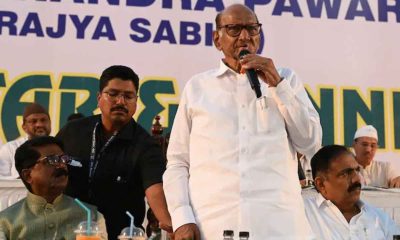
 2024 Lok Sabha Elections10 hours ago
2024 Lok Sabha Elections10 hours agoNCP (SP) leader Sharad Pawar says Prime Minister Narendra Modi is trying to create fear like Russian President Vladimir Putin
-

 Cricket news12 hours ago
Cricket news12 hours agoIPL 2024: Yashasvi Jaiswal hits brilliant century to help Rajasthan Royals beat Mumbai Indians by 9 wickets
-
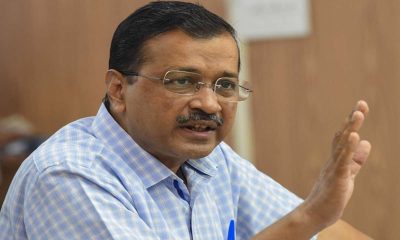
 India News12 hours ago
India News12 hours agoArvind Kejriwal given insulin in Tihar jail after sugar levels touch 320
-

 Entertainment10 hours ago
Entertainment10 hours agoMithun Chakraborty, Usha Uthup honoured with Padma Bhushan
-

 India News11 hours ago
India News11 hours agoSalman Khan house firing case: Mumbai crime branch recovers gun, cartridges from Tapi River in Surat
-
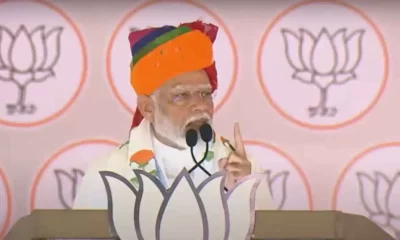
 2024 Lok Sabha Elections9 hours ago
2024 Lok Sabha Elections9 hours agoPrime Minister Narendra Modi says listening to Hanuman Chalisa under Congress rule is a crime
-

 Entertainment8 hours ago
Entertainment8 hours agoFan jumps on stage and hugs Atif Aslam during concert, video goes viral
-
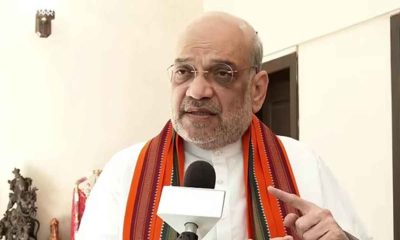
 2024 Lok Sabha Elections6 hours ago
2024 Lok Sabha Elections6 hours agoAmit Shah says neither Congress nor Trinamool chief Mamata Banerjee can interfere with CAA

